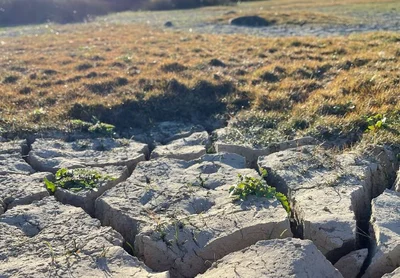Financial relief as dry conditions bite

Local farmers doing it tough in the prolonged dry conditions from El Niño weather patterns will be able to access financial support.
Agriculture Minister Todd McClay classified the near-record dry spell in Marlborough, Tasman and Nelson districts as a "medium-scale adverse event" on March 14.
Last week this support was extended to Canterbury and Otago farmers.
The declaration of a drought will allow affected farmers to access tax relief and other support through Inland Revenue.
The move was made as some farmers were using winter feed supplies to keep stock fed and others were selling stock to reduce the pressure of feed costs and the drop in lamb and mutton prices.
For some dairy farms in Canterbury, stock water is running low and farmers are cutting back on milking.
Rural Support Trusts in North, Mid, and South Canterbury and Otago have been given $70,000 to facilitate community and one-on-one support.
The Mid Canterbury Rural Support Trust (RST) has been allocated $10,000 from that fund.
Local RST chairperson Josh Dondertman said high country and foothill farmers without irrigation in Mid Canterbury had been adversely affected - along with a number of farmers on the Ashburton River, where Environment Canterbury’s new minimum flows had effectively left some farmers without irrigation.
He said the trust was meeting with Federated Farmers, Beef + Lamb NZ, Dairy NZ, the Ministry for Primary Industries and the Mid Canterbury Catchment Collective to work through the challenges and be as proactive as we can to make sure all farmers are looked after.
The RST would have extra facilitator hours for farmers under stress and providing extension services including professional advice, feed budgeting, farm planning – and would be partnering with other groups to do this.
Federated Farmers North Otago president Myfanwy Alexander said farmers in areas such as Otematata, Hakataramea, Twizel and out over the Lindis, had de-stocked and some are having to use winter feed to help sustain remain livestock on farm.
"Crops put in the ground for winter feed are stressed under these drought conditions. Yields will be massively back if they’re there at all,” he said.
Federated Farmers North Canterbury president Karl Dean said dryland farmers in inland areas and up into the Hurunui and Cheviot had been impacted.
"They’re used to farming in dry conditions but it has been challenging. If we don’t get some rain and see that autumn flush, winter and spring will be difficult,” Dean said
Alexander also worried about the flow-on effects of the very dry conditions and de-stocking. Shearers will have less work going forward, for example, and with farmers cutting all but essential spending, local economies will also suffer, he said.
By Sharon Davis

